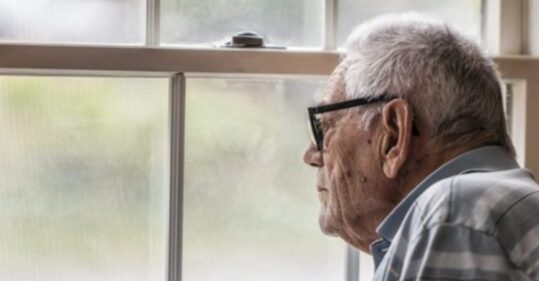Shielding reintroduced for clinically extremely vulnerable living in tier 4

Vulnerable patients in areas placed under new tier 4 restrictions are again being advised to shield from Covid-19.
The shielding advice for those in the clinically extremely vulnerable category is the same as was in place during the second national lockdown in November.
Related Article: Advice on Guillain-Barré risk for adult RSV vaccine updated by MHRA
People on the shielding patient list are asked to take extra caution by:
- Staying at home as much as possible, except to go outdoors to exercise or attend health appointments
- Avoiding all non-essential travel – they should continue to travel to hospital and GP appointments unless told otherwise by their doctor. They are strongly advised not to go to any shops or to pharmacies
- If people cannot work from home, they should not attend work. They may be eligible for Statutory Sick Pay, Employment and Support Allowance, Universal Credit or the Coronavirus Job Retention Scheme
It follows the press conference on Saturday at which Prime Minister Boris Johnson outlined new tier 4 restrictions for London and the South East – in response to a fast-spreading new mutation of Covid-19 – and curbs on Christmas rules for the rest of the country.
From Sunday 20 December, those living in tier 4 areas, which include London, Kent, Essex and Bedfordshire cannot travel to other areas or meet other people indoors, including over the Christmas period, unless as part of a support bubble. Outdoors, people can only meet one person from another household.
In a bulletin, NHS England primary care director Dr Nikki Kanani told GPs on Sunday: ‘Those at highest risk in Tier 4 areas and advised by government to shield are eligible for support including free delivery of medicines (where friends, family, or local volunteers are unable to provide help) and statutory sick pay where unable to work from home.’
Related Article: Lower stroke survival odds faced by people in poorer areas
The Government will be writing to all patients on the clinically extremely vulnerable list in those areas to inform them of this guidance this week, she added.
‘These letters will emphasise the importance of CEV individuals continuing to engage with the NHS, and confirm that they will be prioritised for the Covid-19 vaccination in advance of the general population (as per current JCVI guidance).’
Patients for whom the NHS holds an email address will receive the letter via email this week to avoid the issue of postal delays but announcements would also be made in the media, the bulletin said.
Related Article: Action needed to tackle untreated hearing loss in care homes
People with the following conditions are automatically deemed clinically extremely vulnerable:
- solid organ transplant recipients
- people with specific cancers:
- people with cancer who are undergoing active chemotherapy
- people with lung cancer who are undergoing radical radiotherapy
- people with cancers of the blood or bone marrow such as leukaemia, lymphoma or myeloma who are at any stage of treatment
- people having immunotherapy or other continuing antibody treatments for cancer
- people having other targeted cancer treatments that can affect the immune system, such as protein kinase inhibitors or PARP inhibitors
- people who have had bone marrow or stem cell transplants in the last 6 months or who are still taking immunosuppression drugs
- people with severe respiratory conditions including all cystic fibrosis, severe asthma and severe chronic obstructive pulmonary disease (COPD)
- people with rare diseases that significantly increase the risk of infections (such as severe combined immunodeficiency (SCID), homozygous sickle cell disease)
- people on immunosuppression therapies sufficient to significantly increase risk of infection
- problems with your spleen, e.g. splenectomy (having your spleen removed)
- adults with Down’s syndrome
- adults on dialysis or with chronic kidney disease (stage 5)
- women who are pregnant with significant heart disease, congenital or acquired
Other people have also been classed as clinically extremely vulnerable, based on clinical judgement and an assessment of their needs by their GP or and hospital clinician, the DHSC added.

See how our symptom tool can help you make better sense of patient presentations
Click here to search a symptom




